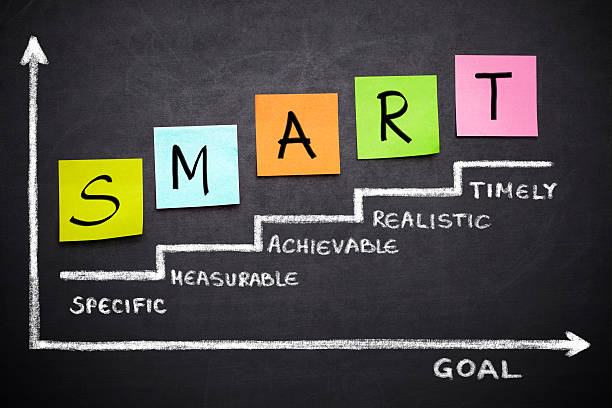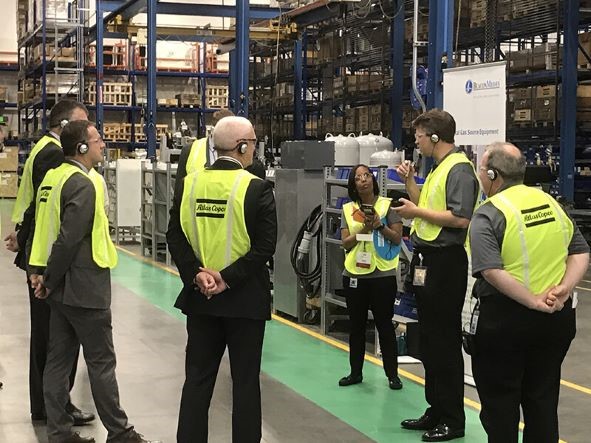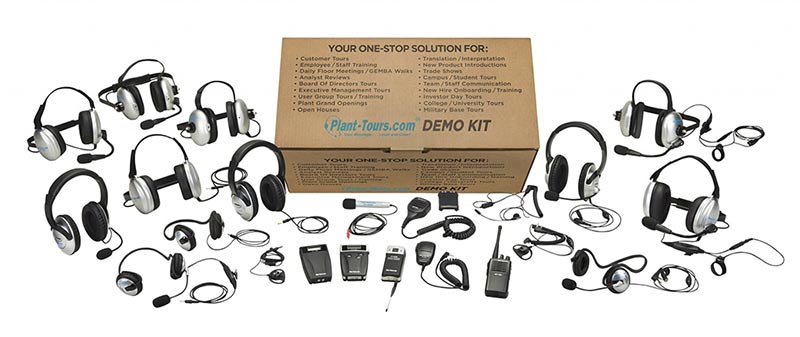There’s a lot that goes into planning a successful event. Whether it be recreational or professional, large or small-scale, and in-person or online — your approach has to be smart. The very first step in the event planning process is to set some very specific event goals. Clear goals — coupled with a strong event strategy and a bit of luck — are sure to guarantee overall event success. So if you’re planning an upcoming event, we’ve got five SMART goals guaranteed to help make it go off without a hitch.
What are SMART goals for event planning
The term “SMART goals” was originally coined by management consultant George T. Doran in the 1981 article There’s a S.M.A.R.T. way to write management goals and objectives. “SMART” here is a mnemonic acronym that Doran defined as “specific, measurable, assignable, realistic, and time-related”.
Since then, however, the exact definition of SMART goals has varied — with some interpreting the “a” as either “achievable” or ”attainable,” the “r” as “relevant”, the “t” as “timely,” and so on.
Even with this, the basic principle remains the same. That is, SMART is a simple template for setting goals and objectives to bring about better results, no matter the industry (such as business management, personal development, or event planning).
Why are SMART goals important
Almost anyone can benefit from incorporating SMART goals into their action plan. To quote Forbes, for example, “SMART goals are useful because they contain five aspects that help you focus and reevaluate goals as needed.” The Corporate Finance Institute adds, “the SMART method helps push you further, gives you a sense of direction, and helps you organize and reach your goals.”
Without a solid and clear objective, the outcome of any venture remains vague and open to chance. On the other hand, having too many goals — or ones that are not realistic — sets you up for failure.
Planning an event in the manufacturing industry can be particularly troublesome. The environments you’re working with — i.e., plants, factories, production facilities — are not always event-friendly, and there are countless safety and other last-minute logistics to consider, too.
So SMART goals are essentially a way to ensure that whatever you’re hoping to achieve can actually be achieved. They help you stay focused, grounded, and if need be — to roll with the punches.
How to set SMART goals for an event
How exactly you apply your SMART event strategy depends on the type of event you’re planning. Your target audience, venue or online platform of choice, timeframe, and event budget will all be key factors. Here are five pointers that should help pull off a smart and successful event in almost any setting.
Be realistic
The “r” in Doran’s original acronym calls for clearly identifying what results can realistically be achieved with the resources available to you. While your vision may be one of excellence and merit, logistics like scheduling, location, and budgeting might not allow you to realize it. So take some notes, do some math, and weigh your pros and cons. Factor in a margin of error. And make sure to consult with your event team and partners as to what they think is doable or not too.
With enough forethought and diligence, your dream event is well within reach. But while ambition is good for an event, you also don’t want to bite off more than you can chew.
Get organized
Once you have a realistic roadmap in terms of numbers and logistics, it’s time to start organizing. Here, Doran’s specific, assignable, and time-related goals come into play. Your event’s date, duration, location, staff, security, catering services, products, marketing strategy, etc. — all these elements should be clearly defined and prioritized accordingly. As Benjamin Franklin once said, “For every minute spent organizing, an hour is earned.”
So make some spreadsheets, assign your various team members individual tasks, and keep things timely and manageable. Don’t micromanage the entire event from start to finish. Rather, get organized, take things one step at a time, and stay organized. Then cross things off your list and take notes as you go along.
Know your audience
Your target audience — i.e., your event attendees — will ultimately have the final say as to whether your event is a success. So it’s vital that you understand them and their needs. For example, are your audience consumers, potential partners, investors, stakeholders, random visitors — or all of the above? Are you giving a tour of your manufacturing facility to novice manufacturing enthusiasts, or are you organizing a professional event for your staff and colleagues? Are your event-goers trainees looking to get into the industry, or are they seasoned manufacturing pros? Is your event a corporate, private, or charity one? The questions can go on and on.
Knowing and understanding exactly who your event is designed for will not only help your goals be more specific, measurable, and realistic, but it will also save you time, determine your marketing strategy, and ensure that your event is relevant. That, in turn, will produce a higher number of attendees, as well as guarantee attendee engagement.
Communicate clearly
Another way to guarantee success is to make sure everyone involved knows about and understands your event. Depending on your specific event objectives, your event marketing strategy will, of course, vary. For instance, if you’ve already successfully hosted dozens of similar events, a few fresh emails and/or website updates should be enough to regenerate interest. If you’re hosting an annual gathering, look at your notes from the previous year — i.e., its milestones, bloopers, and general areas for improvement.
On the other hand, if your event is completely new or one-of-a-kind — then things like generating brand awareness, getting sponsorship, and creating a buzz will obviously require more time and effort. Fortunately, there are countless websites, apps, and virtual event platforms to help you streamline the process these days. Remember that word-of-mouth tends to go a long way in the event industry too.
Communication is also key — in fact, first and foremost — when it comes to your event team. So be sure that both the organizers and participants are on the same page. Communicate clearly and effectively, listen, and leave plenty of room for questions — as well as relevant and timely responses.
Measure success
The “m” in Doran’s SMART goals applies to before, during, and after the event itself. Whether it’s your first event or your one-hundredth, post-event metrics like ticket sales, gross spending, and other KPIs will help you organize your next event more efficiently. So study the data. Send some follow-up emails (and/or set up a blog) to get feedback and gauge attendee experience. Consult with your team, stakeholders, and any other relevant parties.
By properly measuring the specific outcomes, you’ll know exactly what objectives you’ve reached and — more importantly — what areas can be improved upon for future events.
leveraging technology for efficiency and effectiveness
In our increasingly digital and post-pandemic world, online meetings and virtual events often take precedence over live and in-person ones. But sometimes an event simply requires its attendees to be physically present — especially when it comes to the manufacturing industry. Either way, think about creative ways in which you can integrate technology.
Using a tour guide communication system can help with a large number of attendees and/or a noisy environment. You might also consider augmented and virtual reality helmets, digital floor plans, contactless check-ins, and so on. There are also countless online tools, platforms, and apps to help you both plan and execute a successful event at a distance (provided your internet is working).
So do some research and shop around. You don’t have to be particularly tech-savvy these days to pull off a memorable event — be it online or in person. Being SMART about it, however, will definitely help.














